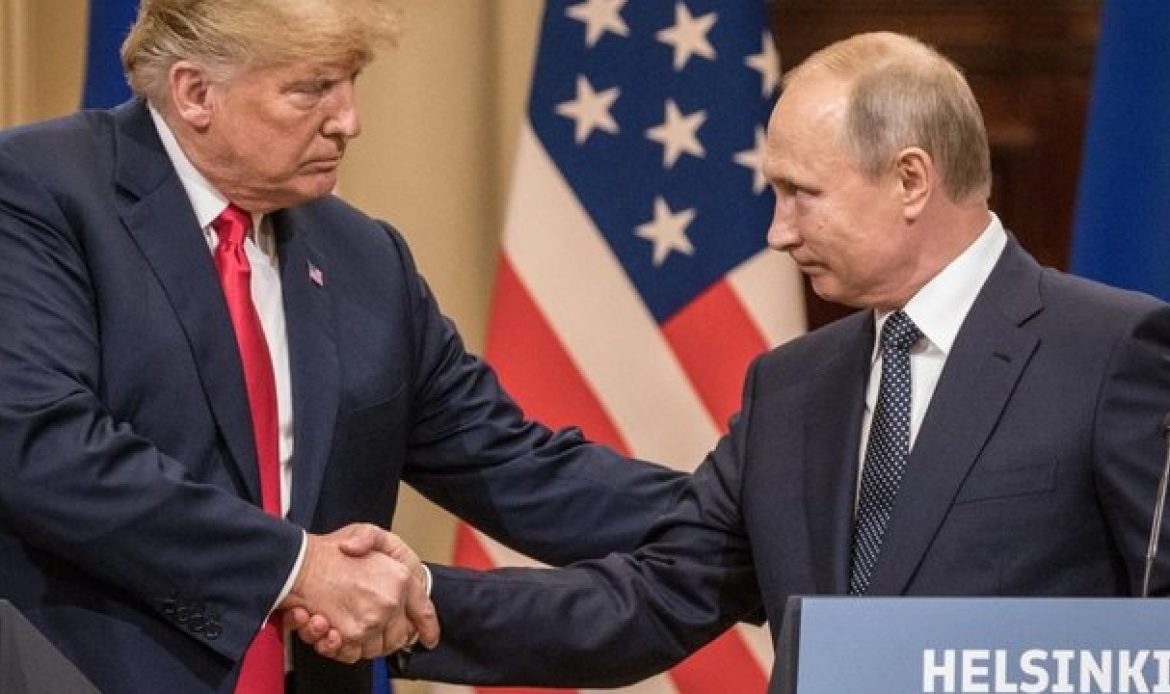
A few weeks before Donald Trump became president, Russian banker Petr Aven, a billionaire oligarch with Moscow’s Alfa Bank, pulled aside Washington lobbyist Richard Burt at a corporate meeting in Luxembourg with a sensitive request.
Aven told Burt that “someone high in the Russian government” wanted “a communications channel between the Kremlin and the Trump Transition Team,” according to Special Counsel Robert Mueller’s recently released report. Aven wanted Burt, a former ambassador who had helped Trump’s campaign, to work on setting it up.
Burt later told Mueller’s team that the request was, in the words of the report, “outside the normal realm,” even for Burt, a well-traveled Washington insider who had worked with Aven for years. It looks even more remarkable now.
The “high” Russian official was none other than President Vladimir Putin, Mueller’s team would later learn. Amid what Mueller called a “flurry of Russian activity” during the Trump transition, the Aven outreach is the only publicly known instance in which Putin, a onetime KGB spy, was personally involved in directing Russia’s clandestine efforts with the incoming administration.
The surreptitious contacts involving Putin, Aven and Burt as described in the Mueller report contradict repeated assertions by Alfa Bank that it had no contacts with Trump or people around him. At the time of Trump’s election, Alfa Bank was at the center of a mystery over an unexplained surge in computer traffic from Moscow to the Trump Organization in the midst of the 2016 presidential campaign. Computer analysts concluded that Alfa Bank had developed a covert communications channel to the Trump Organization.
The bank has adamantly denied those assertions, saying in March 2017, for instance, that opponents were trying to use the Internet traffic to create “the false impression that Alfa Bank has business or other dealings with Mr. Trump.” Alfa Bank said separately that same month that the bank and Mr. Aven had not had “any contact with Mr. Trump or his organizations.”
Mueller did not address the cyber-traffic one way or the other in his report. That has left some Democrats on Capitol Hill unsatisfied. “Even in the wake of the Mueller report, we don’t know the meaning of the 2016 communications between Alfa Bank and Trump Organization servers, nor do we even know whether the FBI has fully investigated those links,” says Rhode Island Democratic Senator Sheldon Whitehouse, a member of the Judiciary Committee.
Burt, who was the U.S. ambassador to West Germany during the Reagan Administration, wears a number of hats in the 2016 story of Aven and Alfa Bank. He helped develop key points for an important foreign-policy speech that then-candidate Trump delivered in Washington in April 2016, with Russian ambassador Sergey Kislyak in attendance. Burt also dined during the campaign with Jeff Sessions, then a top Trump advisor, to discuss policy matters, Mueller said.
Burt has worked over the years with Alfa Bank and other Russian interests. He aided Russia’s plans for a massive gas pipeline, and currently sits on the board of a Luxembourg company, LetterOne, that Aven helped found in 2013 with other Alfa Group leaders and that is investing billions in American health care. It was at a LetterOne meeting that Aven first told Burt of the back channel idea.
“Putin suggested that Aven needed to take steps to protect himself and Alfa Bank,” against the possibility of U.S. sanctions, including by opening up the back channel, the Mueller report said. Putin never explicitly told him to create the back channel to protect against that threat, Aven told Mueller’s investigators, but he took his comments as “implicit directives, and that there would be consequences for Aven if he did not follow through.”
Burt took Aven’s idea to Dmitri Simes, the Russian-born president of a Washington think tank, the Center for the National Interest, where Burt served on the board. Burt asked Simes to arrange a meeting with Jared Kushner, Trump’s son-in-law, Simes told Mueller’s investigators. Simes was lobbying for Burt to be ambassador to Russia, and was speaking with Kushner about foreign policy issues.
According to Mueller’s report, Simes said he told Burt the secret channel “was not a good idea” because of the growing scrutiny over Trump’s alleged Russian ties. The Kushner meeting apparently never occurred. Burt, however, reported back to Aven that there was “interest and an understanding for the need to establish such a channel.” He said that while a “very influential person” advised him the idea was “too explosive” at the moment, it might be reconsidered in the New Year, Mueller said.
Aven said he, in turn, reported back to Putin in early 2017 about what Mueller’s report describes as his “lack of success.” Putin “continued to inquire” in later meetings, Aven said. He eventually told Putin’s chief-of-staff the FBI had subpoenaed him, asking “whether he had worked to create a back channel between the Russian government and the Trump Administration,” Mueller said, but Putin’s aide “did not appear to care.”

